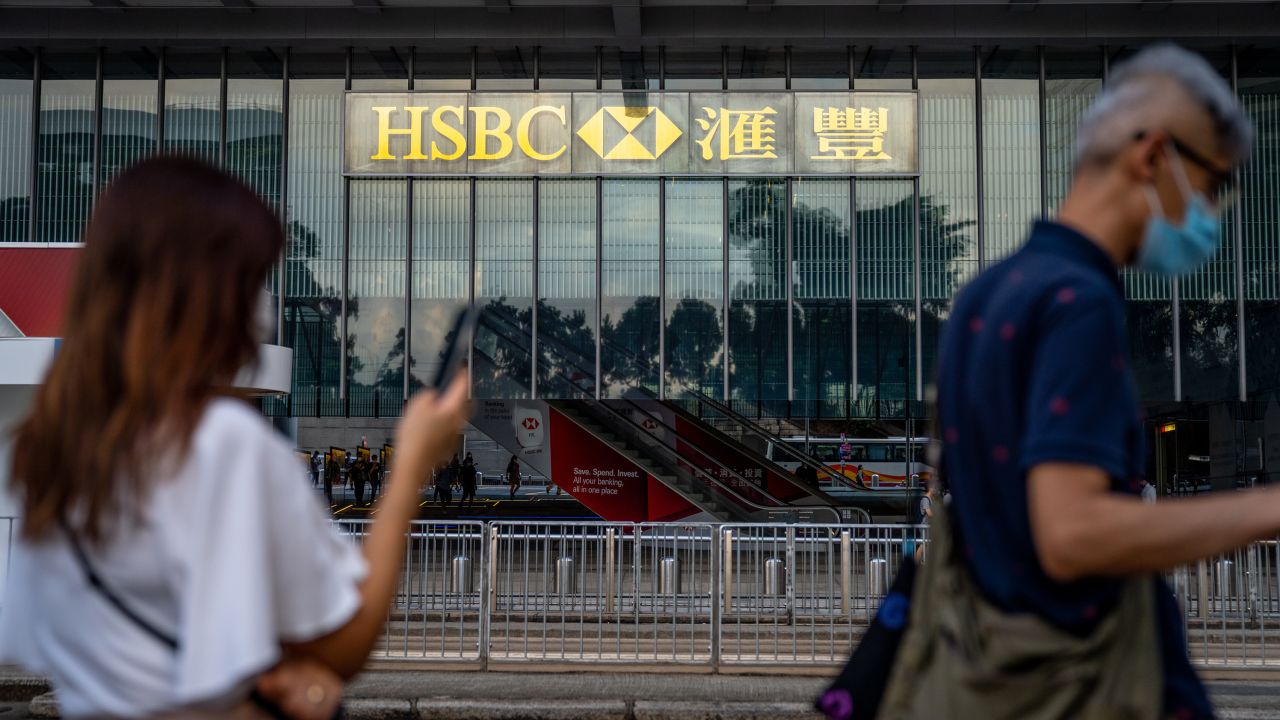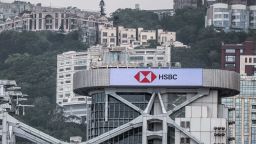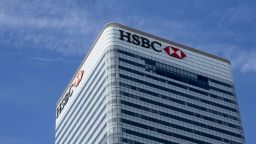HSBC investor Ping An says bank's management has failed on strategy
LONDON, April 18 (Reuters) - HSBC's management has "fundamentally failed to address key business model challenges", the bank's biggest shareholder Ping An said on Tuesday, in an escalation of a spat between Europe's biggest bank and the Chinese insurer.
HSBC should separate its Asia business into a Hong Kong-listed entity, Ping An said, in an update to proposals it began urging last November calling for the bank to spin off its Asia business.
The renewed salvo from Ping An comes as shareholder advisory group Glass Lewis urged investors to vote against proposals calling for a strategic review and dividend policy revamp, deepening divisions between factions of the bank's ownership ahead of its annual meeting on May 5.
"We believe that a structural solution which creates a separately listed Asia business headquartered in Hong Kong will crystallize multiple benefits to all HSBC Group shareholders," Ping An said.
HSBC reiterated its stance that the proposals lack merit.
"It is our judgment, supported by third-party financial and legal advice, and with third-party assurance, that alternative structural options will not deliver increased value for shareholders," a spokesperson for the bank said.
Glass Lewis said the strategic review proposal, filed by individual shareholder Ken Lui in Hong Kong and backed by Ping An, was "not in shareholders' interest".
Lui's resolutions demand HSBC restore dividends to 51 cents per share and provide regular updates on strategy, including the possibility of spinning off its Asia business.
"In our view, the board's strategy and plans appear valid and are likely to result in greater returns and value, on a risk and cost-adjusted basis, than the overly prescriptive and, in our opinion, unnecessary proposals submitted by the proponent," Glass Lewis said in a note to clients seen by Reuters on Tuesday.
The contrasting positions among HSBC shareholders reflect a deep divide over the direction of Europe's biggest bank, which has struggled in recent years to deliver on long-term profit targets and lift its share price.
Since Ping An began pushing for the Asia spin-off last November, the bank has tried to accelerate plans to exit retail banking in underperforming Western markets such as France and Canada, seeking to deliver on a promise to 'pivot' to Asia.
The Chinese insurer, with an 8% shareholding in the bank, would not be able to force a break-up on its own and has so far shown little evidence that it has convinced other large institutional backers of HSBC that its plan has merit.
By Hanna Ziady, CNN
HSBC may have to choose between China and the West
London CNN —
HSBC’s biggest shareholder has called on the bank to create a separately listed Asian business headquartered in Hong Kong to fix what it sees as a lack of competitiveness.
In a strongly worded statement Tuesday, the CEO of Ping An (PIAIF) Asset Management said that despite improvements, the insurer remained “deeply concerned” about HSBC’s financial performance relative to rivals.
“It is necessary for HSBC to push for structural reform to fundamentally address HSBC’s underlying market competitiveness issues, improve performance, enhance value and accelerate growth opportunities in Asia,” Michael Huang wrote.
“The HK-listed business would be able to focus on investing resources in Asia and being more attuned to local Asia market dynamics,” he added. Ping An Asset Management holds just over 8% of HSBC’s shares.
Europe’s biggest bank is facing growing calls to spin off its Asia business. The latest demand comes just weeks before shareholders are due to vote on a resolution at the bank’s annual meeting that could force it to come up with a plan to split off or reorganize its Asian business — HSBC’s main source of profits.

HSBC's Hong Kong headquarters, photographed in September 2021
At an informal meeting of shareholders last month, HSBC (HBCYF) CEO Noel Quinn said a breakup of the bank would result in “significant revenue loss” because much of its business relied on cross-border transactions. Alongside chairman Mark Tucker, he defended HSBC (HBCYF)’s strategy and said splitting the bank would not be in shareholders’ interests.
HSBC reiterated this position Tuesday.
“It is our judgment, supported by third-party financial and legal advice, and with third-party assurance, that alternative structural options will not deliver increased value for shareholders. Rather, they would have a material negative impact on value,” a spokesperson for the bank said in a statement.
“We remain clear that our current strategy is the fastest, safest and most value-enhancing way to deliver returns.”

HSBC's top execs face tense shareholders calling for a breakup
But in his letter, Huang said the lender’s management had “exaggerated many of the costs and risks” of a breakup. “Despite sharing multiple suggestions with HSBC, we have been extremely disappointed by HSBC management’s consistent closed-minded attitude to all solutions,” Huang wrote.
“We believe that both the HSBC team and its appointed paid external advisers have an adamantly preconceived view against reviewing any structural options, despite our continued request for an open dialogue and the demands of other shareholders.”
Under Ping An’s proposals, HSBC Group would remain the controlling shareholder of a separately listed bank headquartered in Asia, giving it “great influence” over “commercial arrangements,” according to Huang.
He argued that the spinoff would improve HSBC’s financial returns, saying they currently lagged those of rivals. For example, HSBC delivered a return on equity — a measure of a bank’s profitability — of 9.9% in 2022 versus the average of 12.5% for its peers, Huang noted.

HSBC buys SVB's UK business, ending 'nightmare' for British tech
HSBC Asia “will be the most valuable and unique bank in Asia with the strongest growth potential within the HSBC system, and also the only local bank with global competitiveness,” he added.
Ken Lui, the activist shareholder who submitted the resolution that would force HSBC to devise a plan to potentially restructure its Asian unit, cheered news of Ping An’s support and said he had hired a consultant to help lobby HSBC’s “top 50 institutional investors tirelessly” on the issue.
Lui has proposed increasing HSBC’s value “by structural reforms including but not limited to spinning off, strategic reorganisation and restructuring” of its Asia business.
Meanwhile, Glass Lewis, an advisory firm, recommended that HSBC investors vote against the proposal. “We do not believe that realizing improvements in returns and value necessitates a breakup or spinoff of HSBC’s Asian business at this time,” it said in a report to clients this week.
HSBC will hold its annual shareholder meeting on May 5.
— Michelle Toh in Hong Kong contributed reporting.
No comments:
Post a Comment